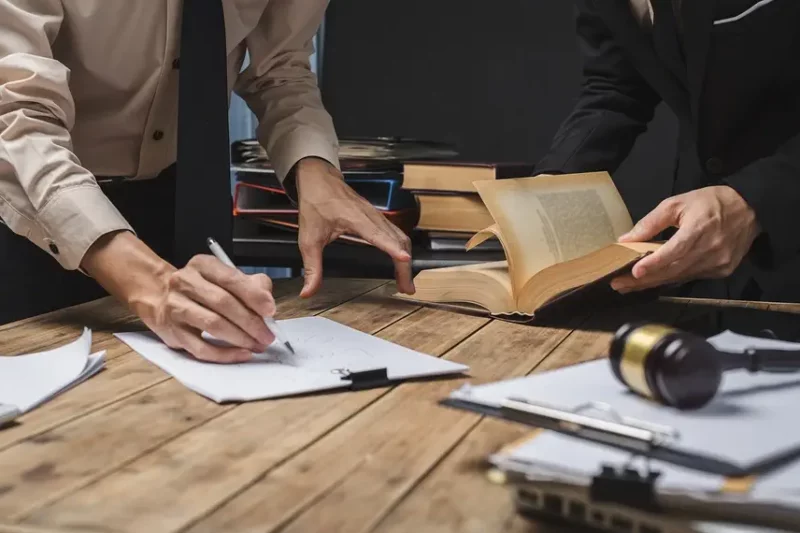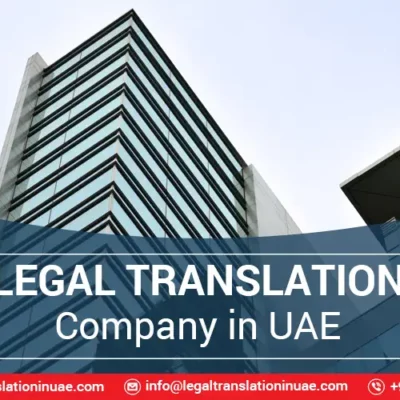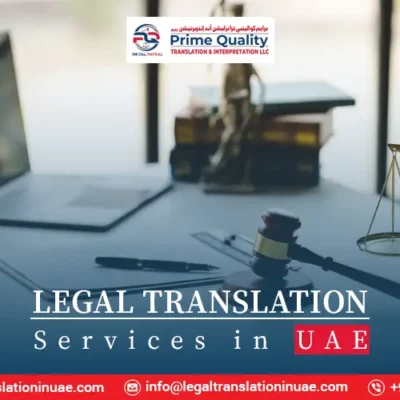Legal translation is a specialized service that requires precision, expertise, and a deep understanding of both legal systems (Civil Law and Sharia Law) and languages. In a global hub like Dubai, where businesses, courts, and government agencies deal with multilingual documents daily, legal translations play a crucial role in ensuring accuracy and compliance.
This guide will explain the legal translation method, its importance, key steps, challenges, and how to choose the best legal translation services in Dubai.
What is Legal Translation?
Legal translation involves converting legal documents from one language to another while maintaining their original meaning, context, and legal validity. Unlike general translation, legal translations require:
- Specialized legal knowledge (understanding of laws in both source and target languages)
- Terminology precision (exact legal terms must be used correctly)
- Certification (often requires attestation or notarization for official use in Dubai)
In Dubai, where Arabic is the official language, legal translations (also called certified or sworn translations) must often be performed by MOJ-approved (Ministry of Justice) translators.
Common Legal Documents Translated in Dubai
- Contracts & Agreements
- Court Judgments
- Marriage & Divorce Certificates
- Power of Attorney Documents
- Company Incorporation Papers
- Immigration & Visa Documents
- Patents & Intellectual Property Filings
Why is Legal Translation So Important in Dubai?
Dubai’s unique position as a global business hub means people from all over the world come here to work, invest, marry, and settle disputes. Legal translations ensure:
- Accuracy in contracts, agreements, and corporate documents
- Clarity for immigration papers and visas
- Validity of court documents and notarized papers
- Compliance with UAE laws and regulations
Without professional legal translations, errors could cause
legal disputes, financial losses, and
even rejected applications.
The Legal Translation Method: Step-by-Step Process
Here are some steps:
Step 1: Document Analysis
- The translator reviews the document to understand its legal context.
- Identifies specialized terms, jurisdiction-specific laws, and formatting requirements.
Step 2: Glossary & Terminology Research
- Legal terms must match the exact meaning in both languages.
Step 3: Translation by a Legal Expert
- Only professional legal translators (preferably with law degrees) should handle the translation.
- Ensures compliance with UAE and Dubai-specific legal requirements.
Step 4: Proofreading & Editing
- A second expert reviews the translation for accuracy.
- Ensures no errors in names, dates, or legal clauses.
Step 5: Certification & Attestation (If Required)
In Dubai, legal translations often need certification from:
- Ministry of Justice (MOJ)
- Notary Public
Some documents require embassy attestation for international use.
Step 6: Final Delivery & Client Review
- The translated document is delivered in the required format (printed, digital, hard copy, or stamped).
- The client verifies the translation before submission to the authorities.
Who Can Perform Legal Translation in Dubai?
In Dubai, legal translations must be done by:
- Certified legal translators licensed by the UAE Ministry of Justice
- Sworn translators who have passed rigorous exams
- Professional legal translation offices accredited in the UAE
It’s illegal to use unofficial translations for court, government, or immigration purposes!
Challenges in Legal Translations
Here are some challenges:
A. Language & Cultural Differences
- Legal systems vary (e.g., Common Law vs. Sharia Law).
- Some legal concepts may not have direct equivalents.
B. Legal Terminology Precision
- A single mistranslated word can change a contract’s meaning.
- Example: "Shall" (obligatory) vs "May" (optional) in legal clauses.
C. Formatting & Certification Requirements
- Dubai authorities have strict rules on stamping and attestation.
- Missing a step can lead to document rejection.
Tips for Choosing the Right Legal Translation Services in Dubai
When selecting a legal translation provider, look for:
- MOJ certification proof
- Experience with UAE laws
- Native Arabic-speaking legal translators
- Positive customer reviews and testimonials
- Fast turnaround times if you have urgent needs
Top Legal Translation Providers in Dubai:
Why Legal Translation is Crucial in Dubai?
- Business Contracts: Ensures compliance in international deals.
- Court Cases: Accurate translations prevent legal misinterpretations.
- Immigration & Visa Processing: Required by Dubai authorities.
- Corporate Documents: Needed for company registrations and licensing.
A single error can lead to delays, fines, or legal disputes, making professional legal translations essential.
Conclusion
The legal translation method is a meticulous process requiring expertise in law and language. Whether for business, personal, or government use, choosing a certified legal translations ensure accuracy and compliance with UAE regulations.
Need Legal Translation Services in Dubai?
To ensure your documents are translated correctly by experts. Contact a MOJ-certified legal translator today!
Click here to get started.
FAQs
Here are some questions:
Q: Is Google Translate acceptable for legal documents?
A: Absolutely not. Legal documents must be translated by certified professionals.
Q: How long does legal translation take in Dubai?
A: Simple documents can take 2-3 working days. More complex contracts may take one week.
Q: Can I get urgent legal translations?
A: Yes! Many certified translators in Dubai offer same-day or 24-hour services for urgent cases.
Note: For urgent requests, turnaround times depend on document complexity and size.
Read More: Get Urgent Legal Translation Dubai Within 24 Hours 






